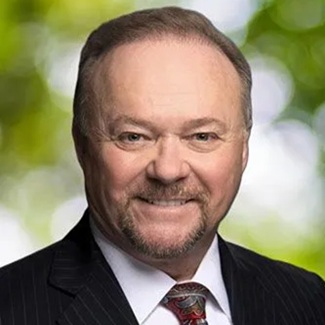Philip Seymour Hoffman’s $12 Million Estate Planning Mistake
A few moves could have saved the loved ones of actor Philip Seymour Hoffman a lot of money. Even if you don’t have a $35 million estate, like Hoffman’s, there are some things you could learn from it.


Profit and prosper with the best of Kiplinger's advice on investing, taxes, retirement, personal finance and much more. Delivered daily. Enter your email in the box and click Sign Me Up.
You are now subscribed
Your newsletter sign-up was successful
Want to add more newsletters?

Delivered daily
Kiplinger Today
Profit and prosper with the best of Kiplinger's advice on investing, taxes, retirement, personal finance and much more delivered daily. Smart money moves start here.

Sent five days a week
Kiplinger A Step Ahead
Get practical help to make better financial decisions in your everyday life, from spending to savings on top deals.

Delivered daily
Kiplinger Closing Bell
Get today's biggest financial and investing headlines delivered to your inbox every day the U.S. stock market is open.

Sent twice a week
Kiplinger Adviser Intel
Financial pros across the country share best practices and fresh tactics to preserve and grow your wealth.

Delivered weekly
Kiplinger Tax Tips
Trim your federal and state tax bills with practical tax-planning and tax-cutting strategies.

Sent twice a week
Kiplinger Retirement Tips
Your twice-a-week guide to planning and enjoying a financially secure and richly rewarding retirement

Sent bimonthly.
Kiplinger Adviser Angle
Insights for advisers, wealth managers and other financial professionals.

Sent twice a week
Kiplinger Investing Weekly
Your twice-a-week roundup of promising stocks, funds, companies and industries you should consider, ones you should avoid, and why.

Sent weekly for six weeks
Kiplinger Invest for Retirement
Your step-by-step six-part series on how to invest for retirement, from devising a successful strategy to exactly which investments to choose.
Philip Seymour Hoffman was one of my favorite actors. He starred in Charlie Wilson's War, Hunger Games, Pirate Radio and many more major movies. His roles covered a wide range, from a priest in Doubt to a coach of the Oakland A's in Moneyball, which evidenced his unique ability as an actor.
Philip was a talented actor … but not a good estate planner. He died in 2014 and was survived by his girlfriend, Mimi, and their three children, ages 10, 7 and 5. He did not want "trust fund kids" so he used a will prepared by his CPA to leave his $35 million estate to his girlfriend. She was to provide for their children.
The lack of planning results in his estate owing estate tax of approximately $12 million. If Philip had married Mimi, his family would have saved approximately $12 million and paid no estate tax whatsoever.
From just $107.88 $24.99 for Kiplinger Personal Finance
Become a smarter, better informed investor. Subscribe from just $107.88 $24.99, plus get up to 4 Special Issues

Sign up for Kiplinger’s Free Newsletters
Profit and prosper with the best of expert advice on investing, taxes, retirement, personal finance and more - straight to your e-mail.
Profit and prosper with the best of expert advice - straight to your e-mail.
Philip also stipulated that funds were to be used for his kids to visit major metropolitan areas for the express purpose of providing his children with access to the arts. This is an example of an incentive provision or trust to help motivate his kids to become the adults that Philip wanted them to become.
The use of a will requires probate, resulting in delays, additional costs and public proceedings. For example, the probate costs for “ordinary services” in California, where I’m based, amount to largely statutory fees, resulting in approximately $376,000 for the first $25 million in estate value and an additional "reasonable amount" to be determined by the court for the remaining $10 million of estate value if that probate is based in California. Those fees are based upon the gross value of the assets without any reduction for liens, selling costs or mortgages. In addition to the statutory fees for ordinary services, extraordinary fees are paid for services related to the sale of real property or a business, tax matters, debt collection or negotiation.
Additional costs for a "living probate" or guardianship for each of the three children may also be required. In California, this typically would require a court appearance and fees every two years until they each turn 18. Fees can be substantial and will vary based widely upon the circumstances and needs of the minor child and the value, type and number of assets involved. They would receive any share of assets to be distributed to them at that time. Not a good age to receive significant wealth. Complete access to funds may result in his kids becoming the trust fund kids Philip hoped to avoid.
An average probate in California without litigation or other issues takes between nine months and 1.5 years. Philip's probate will almost certainly take longer due to the size and complexity. After the probate is completed, Philip's estate will be at risk after distribution to Mimi if she is sued, challenged by her creditors or even in a later divorce if she remarries. That legacy may also be reduced by a second estate tax on her death.
Philip could have provided for Mimi with a Personal Asset Trust, which would help protect her from divorce, lawsuits by predators or fortune hunters, creditors and even a second estate tax imposed on Mimi when she dies.
A similar approach could have been used for each of his children to protect them as well from claims against Philip's legacy throughout their entire lives. He also could have incorporated provisions or bonuses to pass on some of his personal values. For example, Philip wanted his kids to live near or at least visit New York, Chicago or San Francisco at least two times a year to gain an appreciation for the arts and cultural opportunities. He could also have incorporated financial incentives to help motivate his children as they grew up. He could have established specific ages for distributors (staged distributions) so that funds are received when the children are financially mature and able to make wise decisions. For example, one-third at age 25, one-third at 30 and one-third at 35.
We all evolve over our lives as to our ideas of what we "want" as opposed to what we "need." When I was younger, there was so much that I needed. Now, I find that, while there are many things I want, there is very little that I truly need. A financially mature person is better able to make those decisions.
Advanced estate tax planning could have been utilized to minimize and even avoid the estate tax liability upon both Philip’s death and in the future when Mimi dies. Many unique opportunities are now available for tremendous tax savings with our historically low interest rates. This would significantly enhance the wealth retained by the family. These low interest rates will not last forever.
Advanced income tax planning is also available to minimize the income tax owed in the years to come. The maximum capital gains tax rate for California residents is 37.1% (California and federal tax combined). California has the third highest capital gains tax in the world, beaten only by Denmark at 42% and France at 40.5%. California residents pay some of the highest combined federal and state income tax rates in the nation. So, no matter where you live, planning is more important now than ever before.
Profit and prosper with the best of Kiplinger's advice on investing, taxes, retirement, personal finance and much more. Delivered daily. Enter your email in the box and click Sign Me Up.

John M. Goralka is Senior Counsel at CunninghamLegal in Sacramento, California. John joined CunninghamLegal because of the firm's high degree of professionalism, commitment to client service and creative ability to provide solutions. For decades, John has helped thousands of families and business owners protect, preserve and pass on their wealth with confidence. Through The Goralka Law Firm, founded in 1996, Mr. Goralka and his team built a reputation for designing practical, tax-efficient estate plans that truly worked when families needed them most. He is one of the few attorneys in California who is dual-certified as a Specialist in both Taxation Law and Estate Planning, Trust & Probate Law by the State Bar of California Board of Legal Specialization.
-
 Over 65? Here's What the New $6K Senior Bonus Deduction Means for Medicare IRMAA
Over 65? Here's What the New $6K Senior Bonus Deduction Means for Medicare IRMAATax Breaks A new deduction for people over age 65 has some thinking about Medicare premiums and MAGI strategy.
-
 U.S. Congress to End Emergency Tax Bill Over $6,000 Senior Deduction and Tip, Overtime Tax Breaks in D.C.
U.S. Congress to End Emergency Tax Bill Over $6,000 Senior Deduction and Tip, Overtime Tax Breaks in D.C.Tax Law Here's how taxpayers can amend their already-filed income tax returns amid a potentially looming legal battle on Capitol Hill.
-
 5 Investing Rules You Can Steal From Millennials
5 Investing Rules You Can Steal From MillennialsMillennials are reshaping the investing landscape. See how the tech-savvy generation is approaching capital markets – and the strategies you can take from them.
-
 When Estate Plans Don't Include Tax Plans, All Bets Are Off: 2 Financial Advisers Explain Why
When Estate Plans Don't Include Tax Plans, All Bets Are Off: 2 Financial Advisers Explain WhyEstate plans aren't as effective as they can be if tax plans are considered separately. Here's what you stand to gain when the two strategies are aligned.
-
 Counting on Real Estate to Fund Your Retirement? Avoid These 3 Costly Mistakes
Counting on Real Estate to Fund Your Retirement? Avoid These 3 Costly MistakesThe keys to successful real estate planning for retirees: Stop thinking of property income as a reliable paycheck, start planning for tax consequences and structure your assets early to maintain flexibility.
-
 I'm a Financial Planner: These Small Money Habits Stick (and Now Is the Perfect Time to Adopt Them)
I'm a Financial Planner: These Small Money Habits Stick (and Now Is the Perfect Time to Adopt Them)February gets a bad rap for being the month when resolutions fade — in fact, it's the perfect time to reset and focus on small changes that actually pay off.
-
 Social Security Break-Even Math Is Helpful, But Don't Let It Dictate When You'll File
Social Security Break-Even Math Is Helpful, But Don't Let It Dictate When You'll FileYour Social Security break-even age tells you how long you'd need to live for delaying to pay off, but shouldn't be the sole basis for deciding when to claim.
-
 I'm an Opportunity Zone Pro: This Is How to Deliver Roth-Like Tax-Free Growth (Without Contribution Limits)
I'm an Opportunity Zone Pro: This Is How to Deliver Roth-Like Tax-Free Growth (Without Contribution Limits)Investors who combine Roth IRAs, the gold standard of tax-free savings, with qualified opportunity funds could enjoy decades of tax-free growth.
-
 One of the Most Powerful Wealth-Building Moves a Woman Can Make: A Midcareer Pivot
One of the Most Powerful Wealth-Building Moves a Woman Can Make: A Midcareer PivotIf it feels like you can't sustain what you're doing for the next 20 years, it's time for an honest look at what's draining you and what energizes you.
-
 I'm a Wealth Adviser Obsessed With Mahjong: Here Are 8 Ways It Can Teach Us How to Manage Our Money
I'm a Wealth Adviser Obsessed With Mahjong: Here Are 8 Ways It Can Teach Us How to Manage Our MoneyThis increasingly popular Chinese game can teach us not only how to help manage our money but also how important it is to connect with other people.
-
 Looking for a Financial Book That Won't Put Your Young Adult to Sleep? This One Makes 'Cents'
Looking for a Financial Book That Won't Put Your Young Adult to Sleep? This One Makes 'Cents'"Wealth Your Way" by Cosmo DeStefano offers a highly accessible guide for young adults and their parents on building wealth through simple, consistent habits.